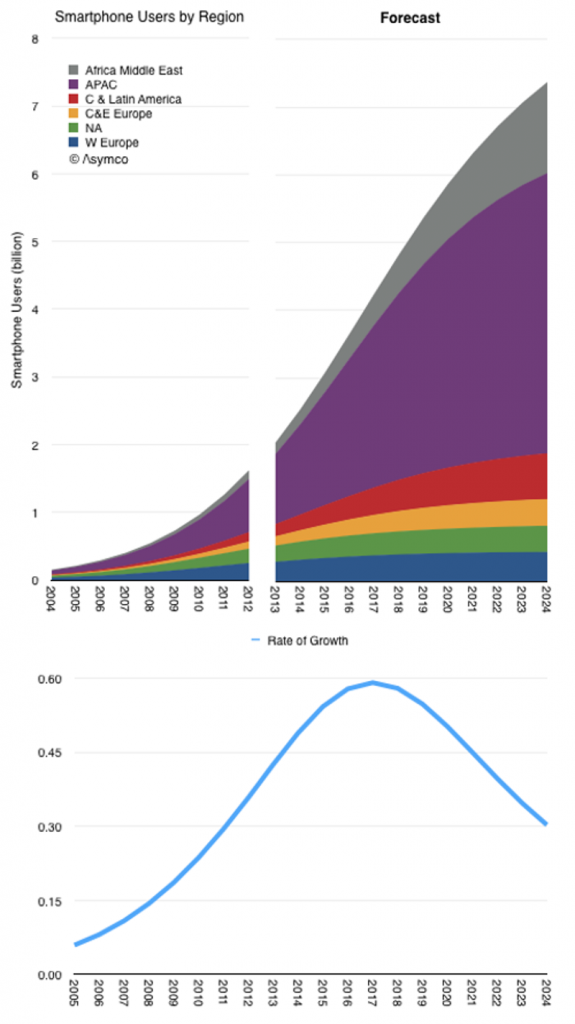Phones!
Posted: June 2nd, 2014 | Author: Michael Goldstein | | No Comments »
From Forbes:
We decided to understand why modern entrepreneurship was skewed so heavily towards solving problems in the developed world and compared the current and future market opportunities in the developing and developed worlds in the mobile space. China, India, Indonesia, Brazil, Pakistan, Nigeria , Bangladesh, Philippines and Mexico together have 3.1 billion or around 43% of the 7.1 billion mobile connections worldwide.
This includes both feature phones and smartphones. Furthermore, smartphone penetration is increasing exponentially in the developing world. By 2024, the number of smartphone users in these regions could be as high as 6 billion. Most of this growth is going to happen at the bottom of the economic pyramid. The future of mobile is very much in the developing world.
Investors have taken notice of this fact. Bridge International Academies, while a relatively new venture, has already raised $6M from a round of funding in early 2014. Living Goods will most certainly raise more capital from venture funds as it demonstrates its financial sustainability.
As an entrepreneur working on mobile-based products, the developing world is a great place to be right now. It’s a vast untapped market where consumers yearn for basic services. So why aren’t enough companies addressing this? Why are entrepreneurs still fixated on social media dashboards and photo sharing apps?
Read the whole thing here.
1. Many Kenyans have simple cell phones, but not smart phones.
2. Even simple phones are a huge help. One big asset to our academic team: we can call our teachers to learn what they think.
3. Smart phones will be a breakthrough for African education. Already there are interesting education “aps” — like Worldreader — that wealthier* African families can use. As prices drop, one day those can be Bridge families, too.
*Wealthier, I mean, just in relative terms: i.e., Kenyan parents that can pay $40/month for tuition, instead of $6/month, probably already have smart phones.



Leave a Reply